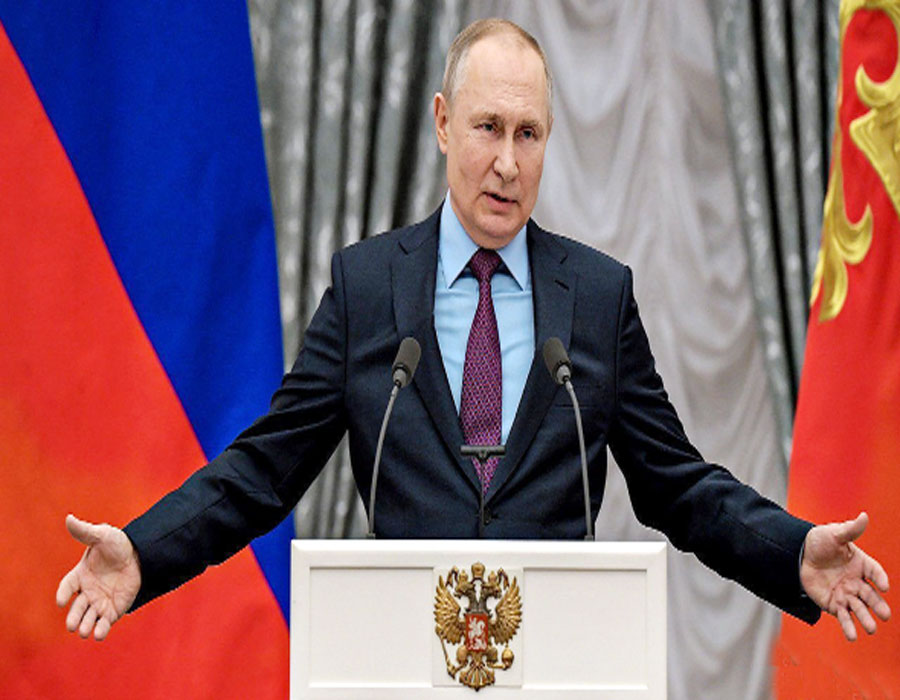The World Trade Organisation members’ demand is easier said than done
Majority of the 164 members of the World Trade Organisation (WTO) have requested the multinational organisation to oust Russia from WTO for launching a devastating attack on Ukraine. Ukrainian President Volodymyr Zelenskyy also wants Russia suspended from WTO as that would make it far more difficult for Russian goods and services to compete in the global market. Russia has responded to Ukraine’s call for its ouster by saying that WTO members “should refrain from discussing in the WTO issues and events, which are out of the scope of the WTO”, and arguing that WTO rules do not permit its suspension.This may become the newest front in the world’s unprecedented economic response to Russia’s invasion of Ukraine. There are precedents, though not within the WTO. Mercosur, the South American trading bloc, suspended Paraguay in 2012 and Venezuela in 2017 - in both cases over failure to maintain democratic order. The US House of Representatives is exploring legislation that would “take the first step to deny Russia access to the World Trade Organization.” But would such a manoeuvre be legal under WTO rules? It’s hard to formally expel Russia - but individual WTO members could probably break off preferential trade relations.
The WTO agreements neither include a provision explicitly authorizing expulsion, nor do they establish criteria, such as maintaining democratic order, that might provide grounds for suspension. There is, though, a complex process that might be used to expel Russia from the WTO, according to James Bachcus, a former member of the WTO’s Appellate Body, as quoted by the western media. Article X of the WTO agreements allows WTO members to adopt amendments that “alter the rights and obligations” of members if they are accepted by two-thirds of the WTO membership (and meet certain other criteria). Initially, these changes apply only to countries that accept them. However, by a three-fourths vote, WTO members can set a time frame for holdout members to accept the amendment, withdraw from the WTO or get the other members’ permission to remain. Withholding that permission from a member that refused to accept an amendment would have the same result as expelling that member. This procedure could be used to expel Russia directly - or to establish specific conditions, such as the invasion of another WTO member, under which a member could be expelled or suspended. While theoretically possible, this is unlikely to succeed. To be sure, 141 members of the United Nations voted to condemn the invasion. If that many countries in the 164-member global trading framework voted to expel Russia, it would amount to 86 percent - easily clearing both the two-thirds and three-quarters voting thresholds. But it is unlikely that so many countries would vote to change the rules. Why? Doing so would establish a precedent that a supermajority of the WTO membership can penalize members for policy decisions they dislike, outside of the WTO’s usual dispute settlement process. Fears like this explain why WTO members generally make decisions by consensus. Consensus decision-making means that even one objection - say, from Russia - would stop the amendment from passing. Even if WTO members do not act collectively to suspend or expel Russia, they can act individually to effectively remove Russia’s WTO privileges. Ukraine and Canada have already done so. The European Union is considering similar measures. In fact, such actions are allowed under the national security exceptions in the WTO Agreements. The General Agreement on Tariffs and Trade (GATT) - the main WTO agreement governing trade in goods - allows measures that a WTO member “considers necessary for the protection of its essential security interests taken in time of war or other emergency in international relations.”
(The writer is former Senior Professor, International Trade and Member, Vivekananda International Foundation. The views expressed are personal.)


























